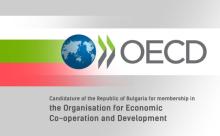OECD
Nurses fleeing exhausting working conditions in ESY
Long working hours and low pay are forcing hundreds of nurses out of Greece's National Health System (ESY), resulting in even greater shortages in personnel.
Vice president hints at tax reform
The government will broaden the tax base and increase the share of direct taxes, Vice President Cevdet Yılmaz has said.
"There have been criticisms such as 'too high a tax burden,'" Yılmaz said on Dec. 12 during his speech in the parliamentary talks on the government's 2024 budget.
- Read more about Vice president hints at tax reform
- Log in to post comments
Public school pupils still struggling in basic tests
Concern is growing in the country's education community after the latest disappointing performance of Greek public school pupils in the recent PISA (Program for International Student Assessment) competition organized by the OECD in 2022.
1 in 4 Bulgarian Children Face Poverty Risk
A recent UNICEF report assessing 40 OECD and EU nations sheds light on Bulgaria's persistent child poverty, showcasing a reduction of 8.3% between 2014 and 2021. Despite this progress, Bulgaria maintains one of the highest child poverty rates in the EU, with a staggering 26% of Bulgarian children facing the risk of poverty.
- Read more about 1 in 4 Bulgarian Children Face Poverty Risk
- Log in to post comments
Consultation with political parties on postal voting to start Monday, minister says
Interior Minister Niki Kerameus said Friday that the consultation process with parliamentary party representatives on postal voting will begin upon her return from Paris, where she is currently chairing the OECD's Global Strategy Group meeting.
Bulgaria Poised to Emerge as Energy Storage Hub: Economy Minister's Talks in South Korea
Economy Minister Bogdan Bogdanov's visit to South Korea has laid the groundwork for a strategic memorandum between the two countries. Discussions held in Seoul with Korean officials, including Trade Minister Ahn Duk-geun, revealed plans for enhanced economic collaboration through a bilateral trade and investment promotion agreement.
Performance of Greek students in steady decline
The quality of education in Greece is steadily declining. At least that's what the Greek students' performance in the most recent OECD-organized PISA (Program for International Student Assessment) competition in 2022 indicates. In the last 10 years, Greek pupils have performed worst in text comprehension, math and science, the three areas in which the competition evaluates proficiency.
- Read more about Performance of Greek students in steady decline
- Log in to post comments
Failing Grades: Bulgaria's Youth Lag in Global Math Exam
The latest findings from the OECD Programme for International Student Assessment (PISA) unveiled the ongoing academic challenges faced by Bulgarian students, particularly in math. The results, presented on Tuesday, disclosed that the average math score of Bulgarian students remains notably lower than the OECD average, holding steady at 417 points, while the OECD average stands at 472.
Demographics, training and labor shortages
Greece is grappling with workforce shortages in both manual and specialized sectors of the economy. Discussions and corresponding policies are focused on identifying additional workers to fill positions associated with investments and to sustain positive growth rates. However, a second challenge looms.
- Read more about Demographics, training and labor shortages
- Log in to post comments
Bulgaria's Economic Outlook: OECD Forecasts 2.8% Growth in 2024
The Organisation for Economic Co-operation and Development (OECD) has revised Bulgaria's economic growth forecasts in its latest World Economic Outlook report, signaling a 1.7% growth rate for 2023, slowing due to external factors, with a projected acceleration to 2.8% in 2024.










